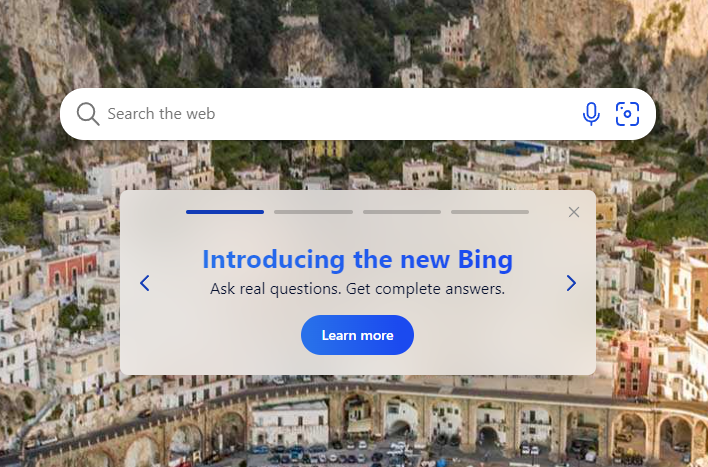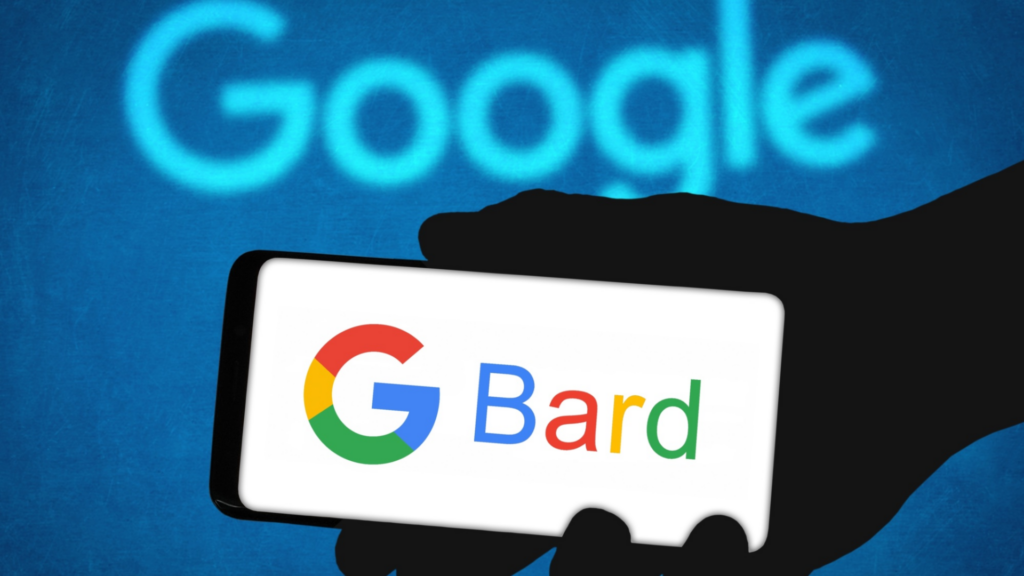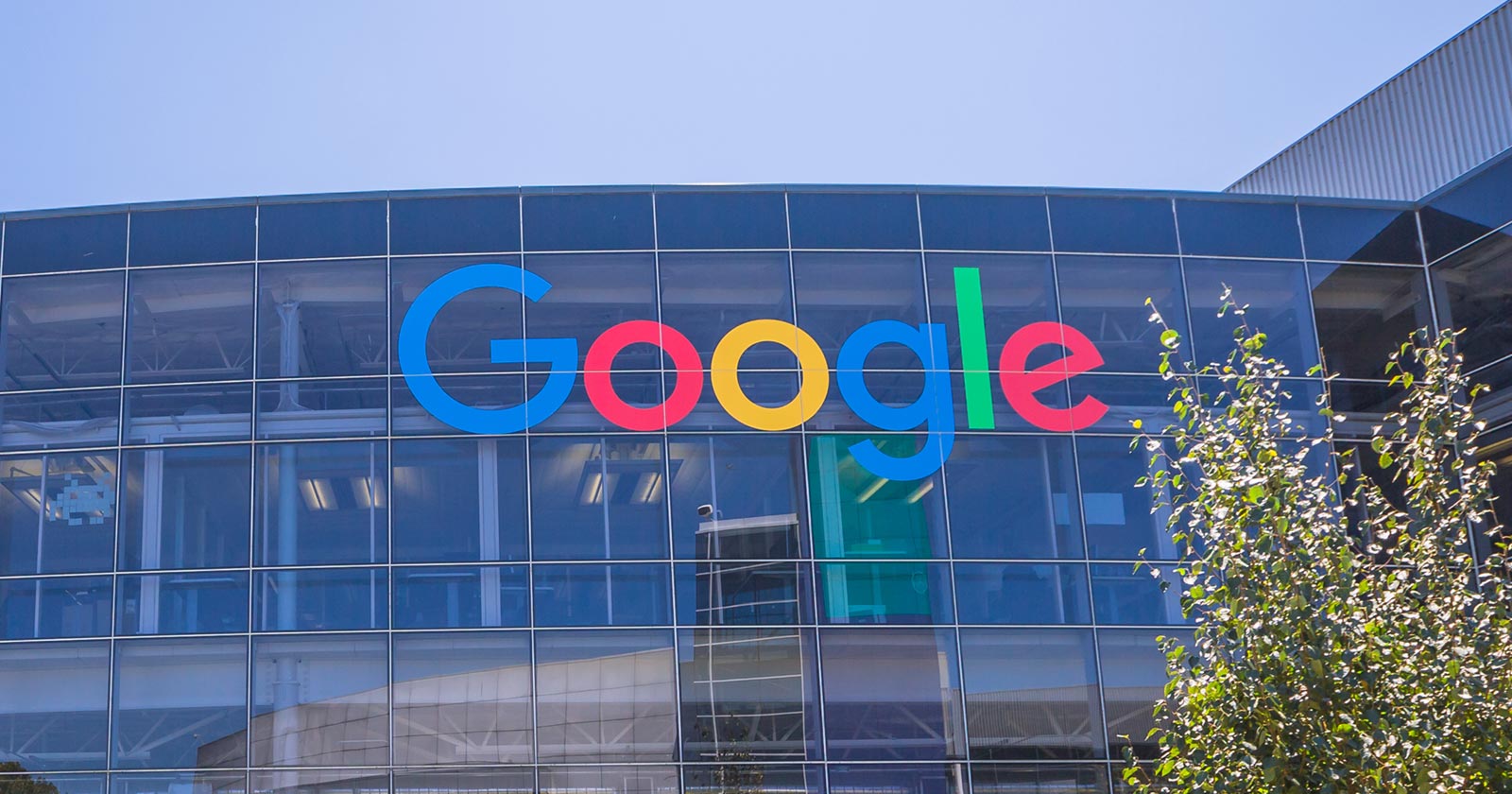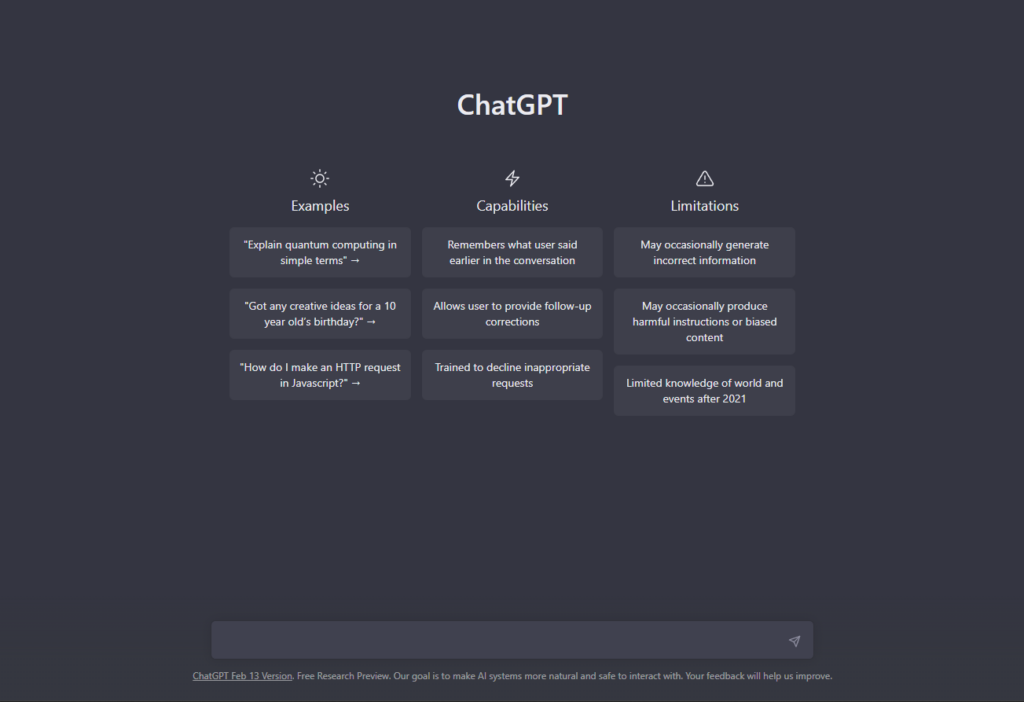SEO
The Coming of Artificial Intelligence Chatbots in Search Engines

Search engines, as we know them, are about to move into a whole new era with artificial intelligence chatbots.
We saw it first with ChatGPT and its record-breaking adoption and how it opened up a wealth of new opportunities in the field of generative AI. We saw it again with Microsoft’s move toward an AI-powered search setup.
And now, with the upcoming launch of Bard, Google’s entry into the artificial intelligence chatbot race, the conflict between AI chatbots have already begun.
We can see it now, in real-time: companies are rapidly expediting their research and development on how they can augment AI in hopes of further improving their current search engines and platforms.
In this article, I will be discussing where we are currently in the ‘AI war’. I will also be comparing the recently launched ‘Microsoft AI-powered Bing’ to Google’s AI-integrated offering – ‘Bard’.
Artificial intelligence (AI) chatbots are a fascinating tool, trained to have human-like conversations using a process called natural language processing (NLP).
This allows the chatbot to both interpret and respond with human language naturally—which enables them to understand language and provide responses based on existing data. And, they can be trained to do just about anything.
There are, in fact, various AI chatbots that exist today that you are probably using daily, the best examples being Apple ecosystem’s Siri and Amazon’s Alexa.
AI chatbots are the greatest proof of the evolution of artificial intelligence and machine learning throughout the years.
And its use cases keep on growing—and we’ve all recently seen one gain massive popularity: which is to answer specific questions. And, a great example of this is ChatGPT, an AI chatbot developed by OpenAI.From its launch in November 2022 up to writing this article in February 2023, it was reported that it reached the 100 million active users milestone. Its rise in popularity has pushed companies like Microsoft and Google in developing their own AI-powered chatbots.
Now back in January 2023, Microsoft announced their collaboration with OpenAI that will allow their own search engine ‘Bing’ to have capabilities and features like what ChatGPT offers to their users, and they will be launching it by March 2023.
And a few weeks later, Google directly responded by announcing that they, too, were currently developing their own “experimental conversational AI feature” called ‘Bard.’ This one was initially released in February 2023 to testers, with no set date for a public release.
Microsoft vs. Google: Who has the better AI Chatbot?
Since AI chatbots seek to give answers or solutions to their users, it makes sense that both Google and Microsoft (Bing) are making moves to bring features of it to further improve their current search engines.
But what about ChatGPT? Well, it wouldn’t make sense to compare this to the other two. One, because it finished training in 2022 (which means its information is not up to date). Two, because ChatGPT is unable to crawl the web.
Now here are some of the important information in Google’s and Microsoft’s AI Chatbots so far:
Microsoft Bing:
Microsoft started investing with OpenAI way back in 2019, and since then Microsoft has moved fast in bringing in the artificial intelligence chatbot in Bing.
Just last month, Microsoft opened the new AI-integrated Bing search in a limited preview for users to test, and the feedback from it was overwhelmingly positive—71% of the users gave it a thumbs-up.

However, despite the good words and praises, there were some issues that came up during the testing, especially for long chat sessions ranging from 15 questions and up. Some users said that Bing became repetitive and gave unhelpful responses to their prompts.
Microsoft later addressed this problem with these changes:
- The AI Chatbot will now be limited to 50 chat turns per day for every user, with just 5 chat turns per session.
- When a user reaches the 5 chat turns in a session they will be prompted to start a new topic, and the context of the conversation with the chatbot will be cleared. This is to avoid the AI chatbot being confused.
- They also added a ‘broom’ icon to the left side of the search bar to manually clear the previous conversation to start a new topic.
Microsoft also introduced its new AI-powered search engine to its Bing search engine and Edge browser for mobile devices. They also added these new features to Skype.
So, we can also expect that these AI-powered capabilities will be added to the rest of Microsoft’s communication applications—like Teams—in the future.
Google Bard:
While Microsoft was agile in launching its improved AI-backed search engine, Google in comparison seems to be taking their time in developing their own AI chatbot. It was only back in January 2023 that they even announced that they would be adding a conversational AI feature to their search engine.
This announcement was made by Google founders Larry Page and Sergey Brin. These founders were brought back to Google by its CEO Sundar Pichai, after the success of OpenAI’s ChatGPT, which posed direct competition in the world of search engines.

Since their initial announcements, we still have limited knowledge about Google Bard. None of this AI chatbot’s abilities have been revealed nor confirmed, and how it will work is a mystery. But, it does look like it will function similarly to OpenAI’s ChatGPT.
Here are some of the relevant (and Google-confirmed) information you might want to know:
- Bard’s conversation capabilities will be powered by a language model created by Google called ‘LaMDA’ (Language Model for Dialogue Applications)
- LaMDA was trained on a dataset called ‘Infinset’
- ‘Infiniset’ is a mix of internet content that was intentionally chosen to improve the model’s ability to engage in conversation or dialogue.
- According to LaMDA’s research paper, it is pre-trained with 1.56 trillion words of “public dialog data and web text.”
With regard to AI, Google is also planning to launch 20 new AI products this year – alongside Google Bard. This demonstrates Google’s commitment to improving its ‘search engine’ more effectively and intuitively for its users.
So Who Wins?
For probably the first time ever, Bing seems to be taking the lead against Google. By launching first, and integrating conversational style answers into their system, they’ve managed to get ahead. In fact, Bing has already opened up a waitlist and is gradually rolling it out—garnering more traffic than ever.
At the same time, Bing’s AI chatbot seems to provide more accurate answers, compared to Google’s (who gave an inaccurate answer in their promotional tweet ).
But while Bing is ahead at this early stage in the race, Google has never taken its competition lightly. They will likely figure out a way to become a significant player in the AI arena in the coming months.
What does Google Bard (and other Artificial Intelligence Chatbots) Mean for the Future of SEO?
Speaking from a Google-centric standpoint, having an AI chatbot implemented could significantly impact our SEO practices.
From the little we’ve already seen, it looks like Bard will replace the spot of the featured snippet. Much like ChatGPT, it could consolidate information from many sources, and provide a personalized answer to the user’s query. It could also provide additional insights, such as articles from the SERP, videos, and more.
For example, someone looking for a step-by-step guide on how to tie-dye a shirt would receive a guide from Bard, rather than a set of articles that may or may not have the design or style that they were looking for.
This could end up changing standard SEO practices, particularly those geared towards gaining a featured snippet. This, in turn, could shift the focus on providing more high-quality, relevant, and informative content for people looking to gain additional perspective or fact-check the answer that Bard provides.
Will Artificial Intelligence Chatbots Replace Organic Search Results?
The picture I painted in the previous sections might look bleak—but it is unlikely that Bard would completely replace all organic search results, once it is fully launched.
After all, as powerful as they can be, AI-powered tools always have limitations and may not always provide the most accurate or comprehensive answer.
Furthermore, Google already understands that not all queries are looking for one, specific answer. Sometimes, people are looking for a variety of sources to come to their own conclusions. Take, for example, if you’re looking for different types of swimsuits for your next vacation. That variety of information and content is something that they can’t get rid of.
What I think is that these new generative AI features being added onto search engines will help users gain access to answers much quicker, as they help organize complex information and multiple viewpoints right in the featured snippet.
So, will Bard, Bing, and other AI chatbots make us SEO professionals obsolete? I don’t think so. They’ll undoubtedly play an important role in delivering information to users, but SEO will not become obsolete.
Key Takeaway
With the rise of Bard, Bing, ChatGPT and other artificial intelligence chatbots pushed a shift in the industry of search engines and its development, and even two of the biggest pillars in the industry— Microsoft and Google—have pivoted their focus on it.
Let this be an important reminder for us SEO practitioners that we should be able to adapt and keep up with the rapid advancement of technology to maintain our competitive edge in the industry.
Lastly, I want to emphasize that SEO and AI are not mutually exclusive. AI will continue to change the landscape of search, but it can also be used to enhance the quality and delivery of information.
SEO
Google On Hyphens In Domain Names

Google’s John Mueller answered a question on Reddit about why people don’t use hyphens with domains and if there was something to be concerned about that they were missing.
Domain Names With Hyphens For SEO
I’ve been working online for 25 years and I remember when using hyphens in domains was something that affiliates did for SEO when Google was still influenced by keywords in the domain, URL, and basically keywords anywhere on the webpage. It wasn’t something that everyone did, it was mainly something that was popular with some affiliate marketers.
Another reason for choosing domain names with keywords in them was that site visitors tended to convert at a higher rate because the keywords essentially prequalified the site visitor. I know from experience how useful two-keyword domains (and one word domain names) are for conversions, as long as they didn’t have hyphens in them.
A consideration that caused hyphenated domain names to fall out of favor is that they have an untrustworthy appearance and that can work against conversion rates because trustworthiness is an important factor for conversions.
Lastly, hyphenated domain names look tacky. Why go with tacky when a brandable domain is easier for building trust and conversions?
Domain Name Question Asked On Reddit
This is the question asked on Reddit:
“Why don’t people use a lot of domains with hyphens? Is there something concerning about it? I understand when you tell it out loud people make miss hyphen in search.”
And this is Mueller’s response:
“It used to be that domain names with a lot of hyphens were considered (by users? or by SEOs assuming users would? it’s been a while) to be less serious – since they could imply that you weren’t able to get the domain name with fewer hyphens. Nowadays there are a lot of top-level-domains so it’s less of a thing.
My main recommendation is to pick something for the long run (assuming that’s what you’re aiming for), and not to be overly keyword focused (because life is too short to box yourself into a corner – make good things, course-correct over time, don’t let a domain-name limit what you do online). The web is full of awkward, keyword-focused short-lived low-effort takes made for SEO — make something truly awesome that people will ask for by name. If that takes a hyphen in the name – go for it.”
Pick A Domain Name That Can Grow
Mueller is right about picking a domain name that won’t lock your site into one topic. When a site grows in popularity the natural growth path is to expand the range of topics the site coves. But that’s hard to do when the domain is locked into one rigid keyword phrase. That’s one of the downsides of picking a “Best + keyword + reviews” domain, too. Those domains can’t grow bigger and look tacky, too.
That’s why I’ve always recommended brandable domains that are memorable and encourage trust in some way.
Read the post on Reddit:
Read Mueller’s response here.
Featured Image by Shutterstock/Benny Marty
SEO
Reddit Post Ranks On Google In 5 Minutes

Google’s Danny Sullivan disputed the assertions made in a Reddit discussion that Google is showing a preference for Reddit in the search results. But a Redditor’s example proves that it’s possible for a Reddit post to rank in the top ten of the search results within minutes and to actually improve rankings to position #2 a week later.
Discussion About Google Showing Preference To Reddit
A Redditor (gronetwork) complained that Google is sending so many visitors to Reddit that the server is struggling with the load and shared an example that proved that it can only take minutes for a Reddit post to rank in the top ten.
That post was part of a 79 post Reddit thread where many in the r/SEO subreddit were complaining about Google allegedly giving too much preference to Reddit over legit sites.
The person who did the test (gronetwork) wrote:
“…The website is already cracking (server down, double posts, comments not showing) because there are too many visitors.
…It only takes few minutes (you can test it) for a post on Reddit to appear in the top ten results of Google with keywords related to the post’s title… (while I have to wait months for an article on my site to be referenced). Do the math, the whole world is going to spam here. The loop is completed.”
Reddit Post Ranked Within Minutes
Another Redditor asked if they had tested if it takes “a few minutes” to rank in the top ten and gronetwork answered that they had tested it with a post titled, Google SGE Review.
gronetwork posted:
“Yes, I have created for example a post named “Google SGE Review” previously. After less than 5 minutes it was ranked 8th for Google SGE Review (no quotes). Just after Washingtonpost.com, 6 authoritative SEO websites and Google.com’s overview page for SGE (Search Generative Experience). It is ranked third for SGE Review.”
It’s true, not only does that specific post (Google SGE Review) rank in the top 10, the post started out in position 8 and it actually improved ranking, currently listed beneath the number one result for the search query “SGE Review”.
Screenshot Of Reddit Post That Ranked Within Minutes
Anecdotes Versus Anecdotes
Okay, the above is just one anecdote. But it’s a heck of an anecdote because it proves that it’s possible for a Reddit post to rank within minutes and get stuck in the top of the search results over other possibly more authoritative websites.
hankschrader79 shared that Reddit posts outrank Toyota Tacoma forums for a phrase related to mods for that truck.
Google’s Danny Sullivan responded to that post and the entire discussion to dispute that Reddit is not always prioritized over other forums.
Danny wrote:
“Reddit is not always prioritized over other forums. [super vhs to mac adapter] I did this week, it goes Apple Support Community, MacRumors Forum and further down, there’s Reddit. I also did [kumo cloud not working setup 5ghz] recently (it’s a nightmare) and it was the Netgear community, the SmartThings Community, GreenBuildingAdvisor before Reddit. Related to that was [disable 5g airport] which has Apple Support Community above Reddit. [how to open an 8 track tape] — really, it was the YouTube videos that helped me most, but it’s the Tapeheads community that comes before Reddit.
In your example for [toyota tacoma], I don’t even get Reddit in the top results. I get Toyota, Car & Driver, Wikipedia, Toyota again, three YouTube videos from different creators (not Toyota), Edmunds, a Top Stories unit. No Reddit, which doesn’t really support the notion of always wanting to drive traffic just to Reddit.
If I guess at the more specific query you might have done, maybe [overland mods for toyota tacoma], I get a YouTube video first, then Reddit, then Tacoma World at third — not near the bottom. So yes, Reddit is higher for that query — but it’s not first. It’s also not always first. And sometimes, it’s not even showing at all.”
hankschrader79 conceded that they were generalizing when they wrote that Google always prioritized Reddit. But they also insisted that that didn’t diminish what they said is a fact that Google’s “prioritization” forum content has benefitted Reddit more than actual forums.
Why Is The Reddit Post Ranked So High?
It’s possible that Google “tested” that Reddit post in position 8 within minutes and that user interaction signals indicated to Google’s algorithms that users prefer to see that Reddit post. If that’s the case then it’s not a matter of Google showing preference to Reddit post but rather it’s users that are showing the preference and the algorithm is responding to those preferences.
Nevertheless, an argument can be made that user preferences for Reddit can be a manifestation of Familiarity Bias. Familiarity Bias is when people show a preference for things that are familiar to them. If a person is familiar with a brand because of all the advertising they were exposed to then they may show a bias for the brand products over unfamiliar brands.
Users who are familiar with Reddit may choose Reddit because they don’t know the other sites in the search results or because they have a bias that Google ranks spammy and optimized websites and feel safer reading Reddit.
Google may be picking up on those user interaction signals that indicate a preference and satisfaction with the Reddit results but those results may simply be biases and not an indication that Reddit is trustworthy and authoritative.
Is Reddit Benefiting From A Self-Reinforcing Feedback Loop?
It may very well be that Google’s decision to prioritize user generated content may have started a self-reinforcing pattern that draws users in to Reddit through the search results and because the answers seem plausible those users start to prefer Reddit results. When they’re exposed to more Reddit posts their familiarity bias kicks in and they start to show a preference for Reddit. So what could be happening is that the users and Google’s algorithm are creating a self-reinforcing feedback loop.
Is it possible that Google’s decision to show more user generated content has kicked off a cycle where more users are exposed to Reddit which then feeds back into Google’s algorithm which in turn increases Reddit visibility, regardless of lack of expertise and authoritativeness?
Featured Image by Shutterstock/Kues
SEO
WordPress Releases A Performance Plugin For “Near-Instant Load Times”

WordPress released an official plugin that adds support for a cutting edge technology called speculative loading that can help boost site performance and improve the user experience for site visitors.
Speculative Loading
Rendering means constructing the entire webpage so that it instantly displays (rendering). When your browser downloads the HTML, images, and other resources and puts it together into a webpage, that’s rendering. Prerendering is putting that webpage together (rendering it) in the background.
What this plugin does is to enable the browser to prerender the entire webpage that a user might navigate to next. The plugin does that by anticipating which webpage the user might navigate to based on where they are hovering.
Chrome lists a preference for only prerendering when there is an at least 80% probability of a user navigating to another webpage. The official Chrome support page for prerendering explains:
“Pages should only be prerendered when there is a high probability the page will be loaded by the user. This is why the Chrome address bar prerendering options only happen when there is such a high probability (greater than 80% of the time).
There is also a caveat in that same developer page that prerendering may not happen based on user settings, memory usage and other scenarios (more details below about how analytics handles prerendering).
The Speculative Loading API solves a problem that previous solutions could not because in the past they were simply prefetching resources like JavaScript and CSS but not actually prerendering the entire webpage.
The official WordPress announcement explains it like this:
Introducing the Speculation Rules API
The Speculation Rules API is a new web API that solves the above problems. It allows defining rules to dynamically prefetch and/or prerender URLs of certain structure based on user interaction, in JSON syntax—or in other words, speculatively preload those URLs before the navigation. This API can be used, for example, to prerender any links on a page whenever the user hovers over them.”
The official WordPress page about this new functionality describes it:
“The Speculation Rules API is a new web API… It allows defining rules to dynamically prefetch and/or prerender URLs of certain structure based on user interaction, in JSON syntax—or in other words, speculatively preload those URLs before the navigation.
This API can be used, for example, to prerender any links on a page whenever the user hovers over them. Also, with the Speculation Rules API, “prerender” actually means to prerender the entire page, including running JavaScript. This can lead to near-instant load times once the user clicks on the link as the page would have most likely already been loaded in its entirety. However that is only one of the possible configurations.”
The new WordPress plugin adds support for the Speculation Rules API. The Mozilla developer pages, a great resource for HTML technical understanding describes it like this:
“The Speculation Rules API is designed to improve performance for future navigations. It targets document URLs rather than specific resource files, and so makes sense for multi-page applications (MPAs) rather than single-page applications (SPAs).
The Speculation Rules API provides an alternative to the widely-available <link rel=”prefetch”> feature and is designed to supersede the Chrome-only deprecated <link rel=”prerender”> feature. It provides many improvements over these technologies, along with a more expressive, configurable syntax for specifying which documents should be prefetched or prerendered.”
See also: Are Websites Getting Faster? New Data Reveals Mixed Results
Performance Lab Plugin
The new plugin was developed by the official WordPress performance team which occasionally rolls out new plugins for users to test ahead of possible inclusion into the actual WordPress core. So it’s a good opportunity to be first to try out new performance technologies.
The new WordPress plugin is by default set to prerender “WordPress frontend URLs” which are pages, posts, and archive pages. How it works can be fine-tuned under the settings:
Settings > Reading > Speculative Loading
Browser Compatibility
The Speculative API is supported by Chrome 108 however the specific rules used by the new plugin require Chrome 121 or higher. Chrome 121 was released in early 2024.
Browsers that do not support will simply ignore the plugin and will have no effect on the user experience.
Check out the new Speculative Loading WordPress plugin developed by the official core WordPress performance team.
How Analytics Handles Prerendering
A WordPress developer commented with a question asking how Analytics would handle prerendering and someone else answered that it’s up to the Analytics provider to detect a prerender and not count it as a page load or site visit.
Fortunately both Google Analytics and Google Publisher Tags (GPT) both are able to handle prerenders. The Chrome developers support page has a note about how analytics handles prerendering:
“Google Analytics handles prerender by delaying until activation by default as of September 2023, and Google Publisher Tag (GPT) made a similar change to delay triggering advertisements until activation as of November 2023.”
Possible Conflict With Ad Blocker Extensions
There are a couple things to be aware of about this plugin, aside from the fact that it’s an experimental feature that requires Chrome 121 or higher.
A comment by a WordPress plugin developer that this feature may not work with browsers that are using the uBlock Origin ad blocking browser extension.
Download the plugin:
Speculative Loading Plugin by the WordPress Performance Team
Read the announcement at WordPress
Speculative Loading in WordPress
See also: WordPress, Wix & Squarespace Show Best CWV Rate Of Improvement
-

 WORDPRESS7 days ago
WORDPRESS7 days ago10 WordPress Influencers to Follow in 2024 – WordPress.com News
-

 MARKETING7 days ago
MARKETING7 days agoFeeling Stuck: What to Do When You Don’t Know What to Do
-

 PPC5 days ago
PPC5 days agoA History of Google AdWords and Google Ads: Revolutionizing Digital Advertising & Marketing Since 2000
-

 SEARCHENGINES6 days ago
SEARCHENGINES6 days agoMore Google March 2024 Core Update Ranking Volatility
-

 PPC6 days ago
PPC6 days agoCompetitor Monitoring: 7 ways to keep watch on the competition
-

 WORDPRESS6 days ago
WORDPRESS6 days agoThrive Architect vs Divi vs Elementor
-

 PPC6 days ago
PPC6 days ago31 Ready-to-Go Mother’s Day Messages for Social Media, Email, & More
-

 WORDPRESS5 days ago
WORDPRESS5 days agoTurkish startup ikas attracts $20M for its e-commerce platform designed for small businesses














You must be logged in to post a comment Login